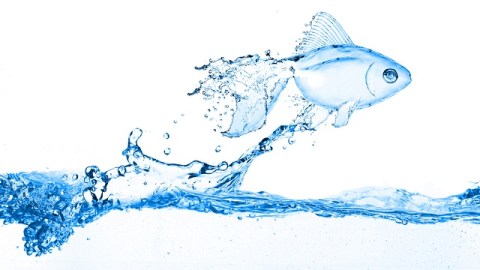Saving Fish From Human Pharmaceuticals

What’s the Latest Development?
A team at Stockholm’s KTH Royal Institute of Technology has developed a wastewater treatment method designed to filter out human drug residues that enter waterways and affect fish and plant life. The method, called membrane distillation, involves water vapor passing through a thin layer of hydrophobic material and eventually condensing onto a cold surface, leaving the residues behind. In initial tests, the method was able to eliminate residues from a variety of 20th-century drugs. Team member Andrew Martin says the only one they couldn’t remove completely was sertraline, an antidepressant commonly marketed under the trade name Zoloft.
What’s the Big Idea?
A study done on fish and plant life in Sweden’s Fyris River showed that even low-level concentrations of oxazepam, an anti-anxiety drug, affected perch behavior, and that they may have contributed to algae population changes. Martin says no other technology currently existing can remove residues on as large of a scale as the membrane distillation technique. Furthermore, he says, “[t]he water temperature does no need to be very high” for the wastewater treatment to work. Next for the team: Tests on water with even higher concentrations of drug residues.
Photo Credit: Shutterstock.com





